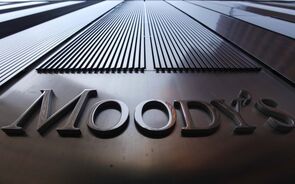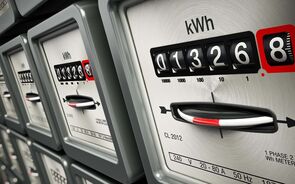Analysts Say Recovery Really Is Here.. está.. não está...
1 Mensagem
|Página 1 de 1
Analysts Say Recovery Really Is Here.. está.. não está...
A parte final FINGER IN THE WIND está um must 
Analysts Say Recovery Really Is Here
Sunday August 31, 12:38 pm ET By Andrea Hopkins
WASHINGTON (Reuters) - Growing signs of strength in the U.S. economy have convinced analysts the long-awaited decisive recovery is at hand. And they really mean it this time.
Often burned but never shy, economic forecasters have ramped up predictions for growth for the rest of 2003 and into 2004, certain -- once again -- that America has turned the corner on the 2001 recession.
"All the data's saying the same thing: this quarter is going to be a cracker," said Ram Bhagavatula, chief economist at Royal Bank of Scotland Financial Markets, predicting gross domestic product growth will hit a 6 percent to 7 percent annual rate this quarter.
He's not alone. A raft of positive economic news in recent weeks has many economists hiking third-quarter growth forecasts as high as 7 percent -- more than double the 3.1 percent annual growth rate notched in the second quarter.
But haven't we heard this all before?
Since the recession ended in November 2001, analysts have been saying the economy was about to regain its feet.
And though premature, they've turned out to be right -- the economy does appear to have bounced back, although job growth is still missing. Forecasters think that's not far off.
Still, doesn't predicting something often enough, or for long enough, guarantee a forecaster will eventually be right?
"There's an old saw that some skeptic once stated ... that the stock market has predicted 10 of the last six recoveries," Fed Chairman Alan Greenspan quipped in July when asked whether the rising stock market proved the economy was recovering.
FINGER IN THE WIND
Perhaps the most revered gauge of the future is the 26-year-old Blue Chip Economic Indicators, which collects the predictions of more than 50 top analysts and publishes the consensus for a raft of indicators.
Editor Randell Moore said the shocks of the last three years -- from the Sept. 11, 2001, attacks to the Enron accounting scandal and Iraq war -- have been hard on forecasters.
"Forecasting the economy is tough enough, but when the economy gets broadsided by these kinds of external shocks that are virtually impossible to predict, it really causes chaos," Moore said.
In July 2002, Blue Chip's panel of analysts forecast a hearty 3.6 percent GDP growth for 2003. By January, with the invasion of Iraq imminent, the consensus had dropped to 2.8 percent. August's consensus was just 2.3 percent.
Moore said few panelists -- even those who miss the mark month after month -- have ever been dropped from Blue Chip.
"I typically don't throw somebody off the panel because they had a poor forecast last year, because time and again we've seen that if somebody has a poor forecast for a couple of years, they're likely to be on the spot the following year," Moore said.
Clearview Economics President Ken Mayland, a regular contributor to Blue Chip and a host of other consensus panels, is not as inclined to forgive poor forecasters.
"I know a few of those people on forecasting panels, and I wouldn't let them walk my dog, much less believe in their forecasts," Mayland said. "They don't do the basic nuts-and-bolts number-crunching."
While a lot of work goes into major economic indicators like GDP, he said estimates for weekly or monthly data like jobless claims -- eagerly lapped up by financial reporters and investors -- should be taken with a huge grain of salt.
"There's probably a lot less science to arriving at numbers like that than you and your readers might have been led to believe," Mayland said. "There's a clear case of people putting their finger in the air and just seeing which way the wind is blowing ... There's virtually no science involved."
Analysts Say Recovery Really Is Here
Sunday August 31, 12:38 pm ET By Andrea Hopkins
WASHINGTON (Reuters) - Growing signs of strength in the U.S. economy have convinced analysts the long-awaited decisive recovery is at hand. And they really mean it this time.
Often burned but never shy, economic forecasters have ramped up predictions for growth for the rest of 2003 and into 2004, certain -- once again -- that America has turned the corner on the 2001 recession.
"All the data's saying the same thing: this quarter is going to be a cracker," said Ram Bhagavatula, chief economist at Royal Bank of Scotland Financial Markets, predicting gross domestic product growth will hit a 6 percent to 7 percent annual rate this quarter.
He's not alone. A raft of positive economic news in recent weeks has many economists hiking third-quarter growth forecasts as high as 7 percent -- more than double the 3.1 percent annual growth rate notched in the second quarter.
But haven't we heard this all before?
Since the recession ended in November 2001, analysts have been saying the economy was about to regain its feet.
And though premature, they've turned out to be right -- the economy does appear to have bounced back, although job growth is still missing. Forecasters think that's not far off.
Still, doesn't predicting something often enough, or for long enough, guarantee a forecaster will eventually be right?
"There's an old saw that some skeptic once stated ... that the stock market has predicted 10 of the last six recoveries," Fed Chairman Alan Greenspan quipped in July when asked whether the rising stock market proved the economy was recovering.
FINGER IN THE WIND
Perhaps the most revered gauge of the future is the 26-year-old Blue Chip Economic Indicators, which collects the predictions of more than 50 top analysts and publishes the consensus for a raft of indicators.
Editor Randell Moore said the shocks of the last three years -- from the Sept. 11, 2001, attacks to the Enron accounting scandal and Iraq war -- have been hard on forecasters.
"Forecasting the economy is tough enough, but when the economy gets broadsided by these kinds of external shocks that are virtually impossible to predict, it really causes chaos," Moore said.
In July 2002, Blue Chip's panel of analysts forecast a hearty 3.6 percent GDP growth for 2003. By January, with the invasion of Iraq imminent, the consensus had dropped to 2.8 percent. August's consensus was just 2.3 percent.
Moore said few panelists -- even those who miss the mark month after month -- have ever been dropped from Blue Chip.
"I typically don't throw somebody off the panel because they had a poor forecast last year, because time and again we've seen that if somebody has a poor forecast for a couple of years, they're likely to be on the spot the following year," Moore said.
Clearview Economics President Ken Mayland, a regular contributor to Blue Chip and a host of other consensus panels, is not as inclined to forgive poor forecasters.
"I know a few of those people on forecasting panels, and I wouldn't let them walk my dog, much less believe in their forecasts," Mayland said. "They don't do the basic nuts-and-bolts number-crunching."
While a lot of work goes into major economic indicators like GDP, he said estimates for weekly or monthly data like jobless claims -- eagerly lapped up by financial reporters and investors -- should be taken with a huge grain of salt.
"There's probably a lot less science to arriving at numbers like that than you and your readers might have been led to believe," Mayland said. "There's a clear case of people putting their finger in the air and just seeing which way the wind is blowing ... There's virtually no science involved."
-
Info
1 Mensagem
|Página 1 de 1
Quem está ligado:
Utilizadores a ver este Fórum: Bing [Bot], Google [Bot], Google Adsense [Bot], m-m, navaldoc, severalmal e 122 visitantes


